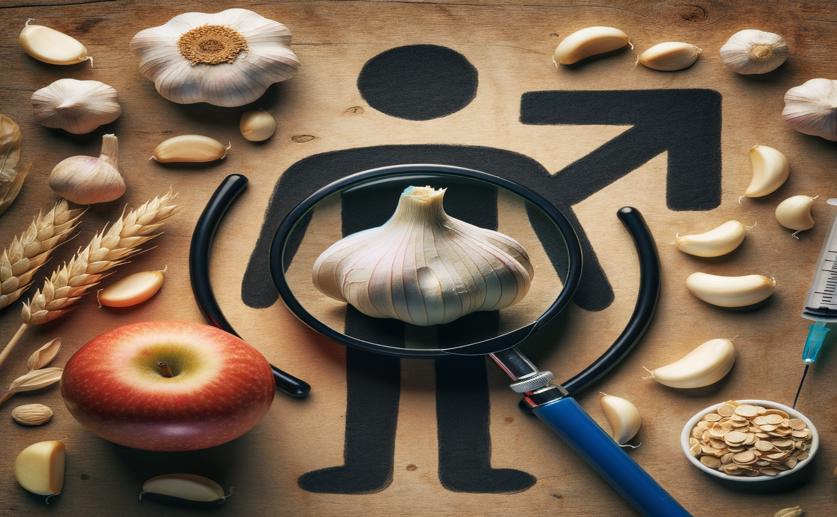
Garlic and Bitter Apple's Impact on Male Fertility in Diabetes
Greg Howard
7th April, 2024

Image Source: Natural Science News, 2024
Key Findings
- Study at Shahid Bahonar University of Kerman shows diabetic rats have increased testicular oxidative stress and inflammation
- Treatment with garlic and C. colocynthis reduced harmful indicators in diabetic rats
- Combined therapy with both plants was more effective, even at lower doses
References
Main Study
1) Effects of garlic (Allium sativum L) and Citrullus colocynthis (L.) Schrad individually and in combination on male reproductive damage due to diabetes: suppression of the AGEs/RAGE/Nox-4 signaling pathway.
Published 5th April, 2024
https://doi.org/10.1186/s12906-024-04402-8
Related Studies
2) Increased receptor for advanced glycation end products in spermatozoa of diabetic men and its association with sperm nuclear DNA fragmentation.
3) Diabetes-induced hyperglycemia impairs male reproductive function: a systematic review.
4) Sulforaphane reduction of testicular apoptotic cell death in diabetic mice is associated with the upregulation of Nrf2 expression and function.



 13th March, 2024 | Jenn Hoskins
13th March, 2024 | Jenn Hoskins